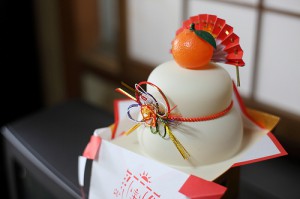The Japanese word 青春 does not apply itself to an exact translation in English. The first letter of the word, 「青」literally means “green,” and in this word is used in the context of a green bud or fruit perhaps, just about to ripen. The second letter, 「春」literally means “spring,” or “blooming.” At first glance this may seem like a word meant to indicate a time in the harvest, but it is, in fact, actually a very colloquial word used to describe a romanticized vision of the teenage years of one’s life.
My informant was a teenager in the city of Naha, Okinawa, Japan, in the seventies. The word has been so long engrained in Japanese society that when I asked her about it, she looked perplexed, asking, “What do American people use to describe those feelings then?” Those feelings, as she described them to me: the first time she realized she had strong feelings for a boy, the first time a boy had asked her out, “that feeling you get when you finally get your first kiss,” the moment when she’d realized she wanted to touch the opposite sex, and not just to hit them, either.
“It’s not all this romantic for everybody. [Laughing] I mean, 青春 can be used to describe things like your first summer job, your first summer away from your parents at camp or something, but I keep coming back to this one time, after this guy I liked gave me my first kiss in front of my house, and he left, and I just sat there on the front steps of my house in the dark, just sat there thinking and thinking, that just happened, not wanting to go inside because that would kind of ruin the magic. That kind of… teenage frailty? And vulnerability, how important everything is when you’re that old–that’s what 青春 has always been for me.”
However, I found it interesting that most teenagers themselves do not use the word 青春 to describe their current state. The word is primarily used by older people who have advanced well beyond their teenage years, to look back on a time when everything was fresher, new, and exciting–in fact, it is a word that exists mostly for the purpose of invoking nostalgia. For instance, my informant remembers, when she had finally gone inside the house after sitting on the steps for a while, she had been caught by her mother in the kitchen. Her mother had said, smiling, “Anything happen then?” When my informant shook her head, she couldn’t help but stay grinning like maniac, and of course her mother knew, and said, “Kiss?” My informant nodded, and her mother sighed romantically, saying, 「ああ良いよね〜、青春」which translates to, “There’s nothing like 青春, is there?” Even in this case, it is the mother looking back on her teenage years, perhaps her first kiss, and feeling nostalgia for the time that has passed–sad, perhaps, that that time will never come back to her, but happy for her daughter, who has yet to experience so much. My informant would never have said, for example, “Oh, this is 青春,” for it is in itself a word tinged with nostalgia. Her mother saying “There’s nothing like 青春,” I thought, is the equivalent of an American mother saying, “Oh, I remember my first date,” except in Japan there is a word for it, and it comes pre-packaged with nostalgia.
When my informant asked me whether there was an equivalent word in English, I was surprised. “Puberty,” didn’t really do it–the connotations were too sexual and bodily in nature, and there was not as much of the vulnerability and freshness that colors 青春. A significant part of the meaning inherent in 青春 comes, I believe, from the fact that they do not reference the changing nature of the body; though, of course, it is apparent indirectly in the budding feelings between the opposite sexes, the word focuses more on the emotions and the intense, painful nature of love at that age. Sexual encounters in 青春 are thought of as always awkward, and always romantic, stemming from love and innocent desire more than anything else. Under the umbrella of the word 青春, everything becomes noticeably more innocent, more okay.
Perhaps this word works and is so widespread in Japan because of its extremely homogeneous society; 青春 as a word probably means very similar things to many people across the country, if only because the culture has been so standardized by television and by the homogeneity of the people themselves. There are countless movies, dramas, mangas, and animes devoted to the theme of 青春, and indeed novels concerning this period in life often make the top of the best-seller lists in Japan.
Unlike in America, teenagedom is something the Japanese look back to, then, with a certain fondness. Often, I hear people in America saying that they never want to go back to high school again, that they wouldn’t survive a single day in middle school now–in Japan, although of course some people must feel the same way, the general feeling is one of an almost maternal fondness. Remember this? Remember that? They say, as they watch a new generation of young adults going through the 青春 that they themselves had experienced perhaps long ago. “Lucky them,” my informant said. “If I could stay one age all my life, I think I’d just stay in that period of 青春, it must have been the most fun I ever had.”

